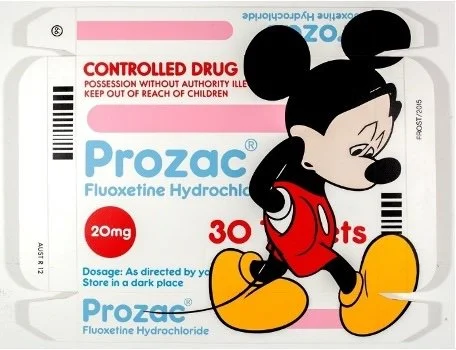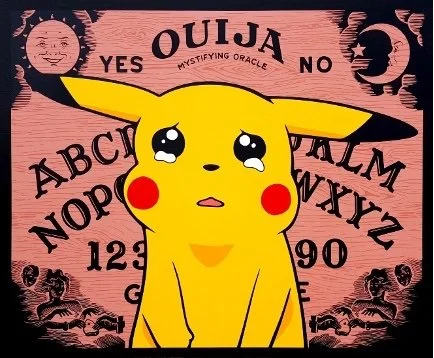CONSUMPTION
to consume or be consumed
The word “consumption” first appeared in the 14th century to describe any potentially fatal wasting disease – that is, any condition that “consumed” the body. But over time it came to apply more specifically to tuberculosis and currently society in general…
Since then, consumption has become a theory for economic activity, the food chain, and culture in general, we are all consumers… not just of food, but of ideas, politics, subliminal messaging, ideology, religion…
Our written section this month is a mixed back of poems, and critique that I am sure you will enjoy as much as we have…
Our first piece is by our resident writer and artist Michaela Hall
The Same but Different
Every day we are overloaded with images that simultaneously mean nothing and everything to us. We walk past billboards that seep into our subconscious and see advertisements on our social feeds that seem to know us better than we do. We are in a culture of the immediate, the shiny and new, the consumer. So much so that the logos, symbols, and graphics we have gotten very used to seeing can become immune to gaining our attention. Can we allow ourselves to recognise these images in a new context or will they always mean what they traditionally have? This is something that artists Ben Frost and Laura Benjamin explore in their eye-catching works.
Australian artist Ben Frost is well known for his colourful, pop depictions of Western consumerist culture. Frost takes brands, logos, characters, and advertisements that most of us would instantly recognise and twists them to represent something we wouldn’t expect, creating a new narrative. His paintings that do this are often fuelled by dark humour or irony and challenge the nature of the original image we recognise. In ‘All Tomorrow’s Parties (2017) the iconic Pokémon character Pikachu who we usually associate with the happiness and innocence of the animated Japanese series is depicted in tears in the background of an Ouija board – this instantly flips the context of the character we’re used to. Similarly, in ‘Store in a Dark Place’ (2015) the family favourite Disney character Mickey Mouse is depicted looking rather glum on a Prozac packet – a medication typically used as an antidepressant. These dark twists on characters we know, and love immediately make us refocus our attention on these icons of modern-day consumerism and wonder what went wrong.
With a much lighter approach, American artist Laura Benjamin also adapts icons of consumerism by transforming them into a collection of collage materials to create a new image. In Benjamin’s work we have a double whammy of familiarity; not only do we recognise the candy wrappers she uses as collage material with iconic logos, but we also recognise the icons of pop culture who she creates images of with these materials. Benjamin places a big importance on creating work with an underlying approach of humour and curiosity and this is evident from the characters and icons she places together. In ‘Never Trump’ American ex-president and all-around controversial character Donald Trump is depicted through candy wrappers of orange, red and yellow tones – all poking fun at his reputation for having an over-the-top orange tan. The ‘Monster’ energy drink logos used in the background also poke fun at the views some may have had of him as a politician. Similarly, in, ‘Einstein’ which takes a different and cooler colour palette of candy wrappers, we see that the biggest visible logo in the image is ‘Nerds’ – poking fun at the fact that Einstein was one of the most intelligent and intellectual men to ever live.
The tongue-in-cheek approach from both artists towards their consumerist materials allows us to re-focus our minds on something we are perhaps too used to seeing and to see them as something new, creative and inventive. Not only do these familiar materials remind us of our relationship with the commercial in modern society but they also take something which has become rather two-dimensional in meaning and transform it into something alive and kicking through humour and strategic composition which creates more of a social commentary than you would initially recognise. The images are the same, but completely different.
**********************************
Submitted by - ann diment
Instagram account
https://www.instagram.com/anndimentartist/
Description
A poem was written about the broken world of work and how creative work isn't valued in our 'wage slave' culture.
It’s not working
It’s not working if it’s fun.
Painting, playing music Son.
Get yourself a ‘real job’
A 9-to-5, a daily slog.
It’s not working if you’re not
a wage slave, adding to the pot
of the Corporate vultures wanting more,
bleeding profits from the poor
BUT WAIT….
Listen to me my love….
‘A living wage is all you need’
What kind of ‘living’ do you mean?
Not seeing my kids in waking hours
to fuel Shareholders greed?
Trapped by mortgages, debts (not all ours)
What do we really need?
Spending more time travelling to and fro’
than playing with my kids.
Is that the ‘living’ you want for me Dad?
I don’t think it is………….
*********************
Submitted by - Xavier Panades-The Catalan
Instagram account
super_xavier
Description
I have a great need to express myself when the blind are destroying the world they need to see…
Saviors!
Blood torrents
run openly
in the thoughts
of some citizens.
Do not spill over
their ties,
their jackets,
their folders.
Passing through streets
buying, consuming
the bodies of the people,
for their ardent desires.
Every click of the card,
buys a dream,
achieve a pleasure,
and enslaves a stranger.
Imprisoned for their prejudices,
children, women, men,
produce the dreams,
for the zombie consumers.
Laughing with the presents,
at Christmas, in summer,
they are happy and competent,
destroying nature and people.
And the saviours of the world,
They drive Mercedes
and pollute the lungs
of their own sons.
Salvadors!
Torrents de sang
corren obertament
en els pensaments
d'alguns ciutadans.
No embruten
les seves corbates,
les seves jaquetes,
les seves carpetes.
Davallen pels carrers
comprant, consumint
els cossos de la gent,
pels seus desitjos ardents.
Cada clic de la targeta,
compra un somni,
realitza un plaer,
alhora esclavitza, un estranger.
Empresonats pels seus prejudicis,
nens, dones, homes,
produeixen els somnis,
pels consumistes zombis.
Riuen amb els regals,
al Nadal, a l'estiu,
són feliços i competents,
destruint la natura i la gent.
I els salvadors el món?
Condueixen Mercedes,
embrutant els pulmons
dels seus propis nadons.
*******************
Submitted by - Sandra Gea
Instagram/website; www.sandragea.com
@the.art.of.wu.wei
Description
"Unsustainable" is a dada poem I wrote following a social media burnout as a consequence of which I deleted my Facebook account. The poem denounces the objectification of the self, the impoverishment of language, and the dehumanization of relationships. As the virtual reality dissolves, an existential question surfaces: who was I before I became a consumer and the one being consumed by social media?
UNSUSTAINABLE
You bought your own extinction
In the pages of a glossy magazine
And sold your soul to the machine
You and I don't click anymore
Virtually incompatible
Says the algorithm
Thumb down sad emoji
Apologies
Me don't read hieroglyphs
A B C Decode
Lost binarity
Darling, what boots shall I wear for the big reset?
I am suiciding my avatar tonight
Alpha Zeta Meta
In the beginning, were the words
Glitches Hitches Witches
Exorcise language
Depolarise the polar bears
Lobotomise the lobsters
Galvanise the vultures' wings
Rebel Resist Reinvent
Plough the earth with your bare hands
Purr Howl Roar
Rewild yourself point zero.






